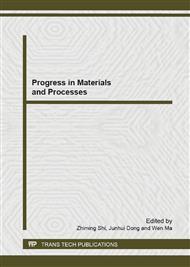p.892
p.896
p.900
p.904
p.908
p.913
p.917
p.921
p.929
The Composite Catalysts Used for Cotton Denim Resin Wrinkles Setting
Abstract:
Severe strength loss is the most important problem for denim wrinkle-setting resin finishing. N,N-dimethylol 4,5-dihydroxy- ethylene urea (DMDHEU) resin、composite catalyst, baking time and temperature were used as four important factors in experimental design by central lab. The significant influence and the optimum condition achieved by analysis four factors and regression analysis. In contrast to traditional catalyst magnesium chloride, under optimum condition employed by composite catalyst 20.61(g/L), resin 143.08(g/L), baked at 129.4°C for 18.0 min, the strength loss of treated fabric reduced by more than 12%.
Info:
Periodical:
Pages:
908-912
Citation:
Online since:
December 2012
Authors:
Price:
Сopyright:
© 2013 Trans Tech Publications Ltd. All Rights Reserved
Share:
Citation:


